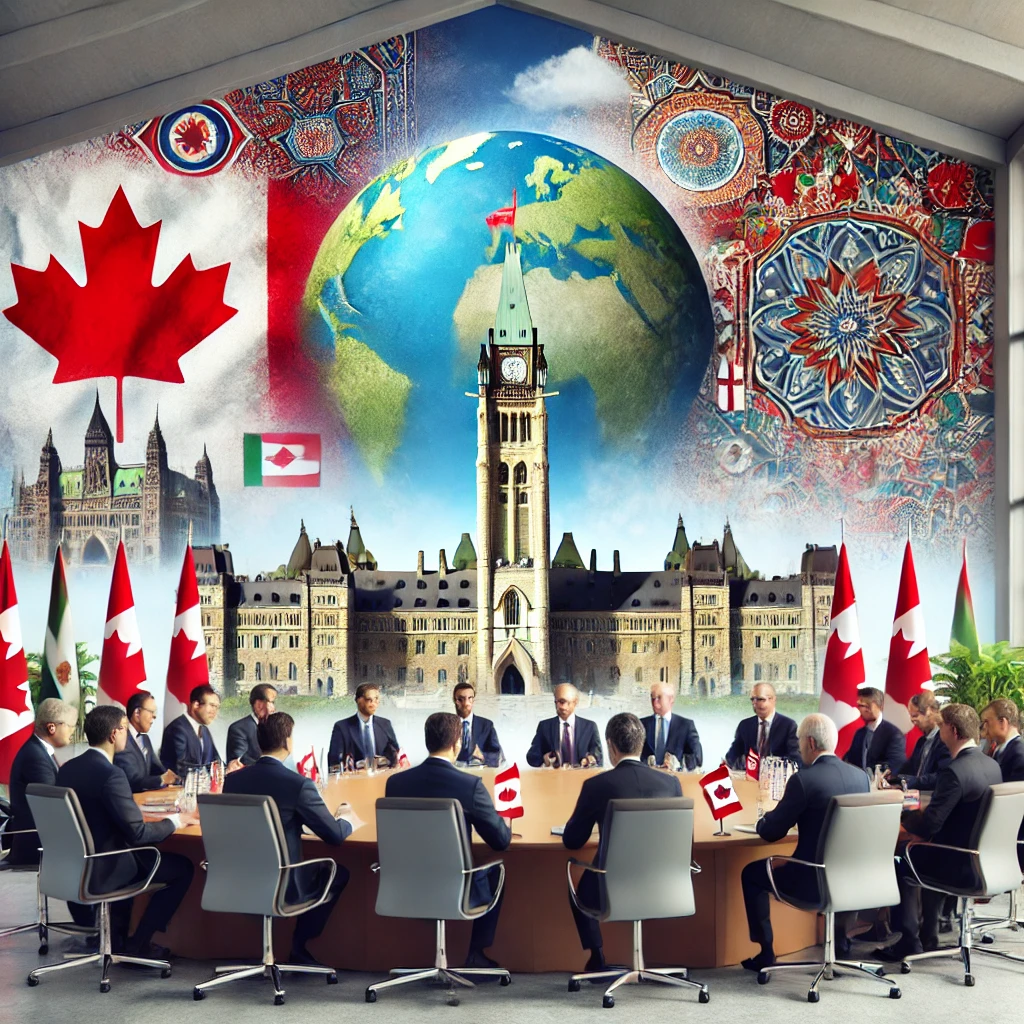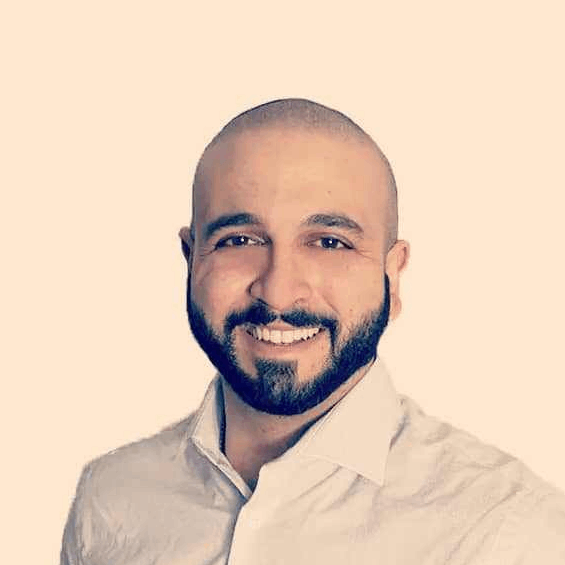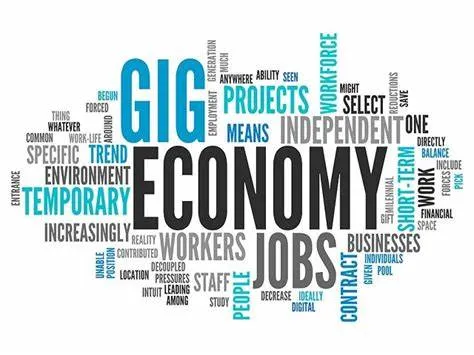Introduction
The Middle East is once again the epicenter of a geopolitical crisis that has reverberated across the globe. What began as a localized conflict between Israel and militant groups in Gaza has quickly expanded into a regional confrontation, pulling in actors like Hezbollah in Lebanon, and raising tensions in countries such as Iran, Syria, and others. Among the most significant recent developments is the death of Hassan Nasrallah, the Secretary-General of Hezbollah, whose leadership had long been a stabilizing yet antagonistic force in Lebanon’s involvement with Israel. This article takes a deep dive into the timeline of this ongoing conflict, tracing it from its origins in early October 2023 up until today. We will also examine Canada’s role, focusing on Ottawa’s governmental and public response to the crisis as it continues to unfold.
A Historical Perspective: The Roots of the Conflict
To fully understand the current crisis, it’s important to revisit the deep-seated origins of the Israeli-Palestinian conflict. The struggle between Jews and Arabs over land in the Middle East dates back over a century, but it reached a critical point with the creation of the state of Israel in 1948. Following Israel’s establishment, a series of wars between Israel and Arab nations ensued, particularly in 1948, 1956, 1967, and 1973. Each war reshaped the region, but none brought lasting peace.
The 1967 Six-Day War and Occupation of Territories
The 1967 Six-Day War was a key moment in this protracted conflict. Israel captured large swathes of territory, including the West Bank, Gaza Strip, East Jerusalem, and the Golan Heights. While Israel withdrew from Sinai following peace talks with Egypt, it has maintained control over these territories, much to the frustration of Palestinians and neighboring Arab states. The situation worsened with the growth of Israeli settlements in the West Bank and the blockade of Gaza after Hamas took control in 2007.
Hezbollah’s Rise to Power
During the Israeli occupation of Southern Lebanon from 1982 to 2000, Hezbollah emerged as a powerful Shiite militia backed by Iran and Syria. Initially framed as a resistance movement against Israeli occupation, Hezbollah has since grown into a major political and military force in Lebanon, with its militia often clashing with Israeli forces. Hassan Nasrallah took leadership of Hezbollah in 1992, and his tenure saw the group evolve into a state within a state in Lebanon. His death in 2023, whether by natural causes or covert actions, is a major turning point for the region.
The Spark: October 7th, 2023
The events of October 7th, 2023, marked the beginning of the latest wave of violence. A series of confrontations between Israeli police and Palestinian protesters at the Al-Aqsa Mosque in Jerusalem ignited widespread unrest across the region. The site is a highly sensitive location, considered one of the holiest places in Islam, and any disturbances there have historically triggered large-scale reactions.
Within days, Hamas and smaller factions in Gaza began launching rockets toward Israeli cities, citing ongoing Israeli restrictions on Palestinian worshippers as their motivation. In retaliation, Israel launched airstrikes targeting Hamas infrastructure in Gaza, killing militants but also civilians. While clashes between Israel and Gaza-based militants are not new, the scale and intensity of the attacks in October 2023 were unprecedented.
Hezbollah’s Involvement
Shortly after the fighting erupted between Israel and Gaza, Hezbollah, based in Lebanon, entered the fray. Hezbollah’s involvement signaled a larger regional escalation. The group launched missile attacks into Northern Israel, triggering a military response that led to the deaths of civilians and combatants on both sides of the border. Israel retaliated with artillery strikes and air raids on Hezbollah positions in southern Lebanon. The situation became more volatile after Nasrallah’s death, creating a leadership void that fueled instability in Hezbollah’s command.
The Death of Hassan Nasrallah: A Pivotal Moment
The death of Hassan Nasrallah in late November 2023 is a major turning point in the broader conflict. Nasrallah had long been a symbol of Lebanese resistance to Israel and a key ally of Iran. His leadership ensured that Hezbollah remained a significant military and political player in Lebanon, despite criticism of its close ties to Tehran.
Nasrallah’s Legacy
Nasrallah was more than just a military leader. His charisma and political acumen enabled him to maintain unity within Hezbollah while expanding the group’s influence throughout the Middle East. His death leaves a vacuum that risks fracturing the group, with factions potentially vying for power and influence. This internal disarray in Hezbollah has led to increased attacks on Israel, potentially driven by attempts to show strength amid uncertainty.
International Response: Global and Regional Reactions
The conflict has drawn significant international attention. The United States, a close ally of Israel, condemned the rocket attacks from Gaza and Hezbollah and supported Israel’s right to self-defense. European countries, while generally supporting Israel’s position, have also urged restraint, particularly when it comes to targeting civilian infrastructure in Gaza and Lebanon.
Iran’s Role
Iran, a long-time supporter of Hezbollah and Hamas, condemned Israel’s actions, praising both groups for their resistance efforts. While there has been no direct military involvement from Iran, its financial and military support for Hezbollah has increased tensions, leading some to fear a broader regional war.
Canada’s Response: Ottawa’s Stance
Governmental Reaction
Ottawa’s official response has been cautious but firm. Prime Minister Justin Trudeau’s government has historically supported Israel’s right to defend itself while advocating for a peaceful two-state solution to the Israeli-Palestinian conflict. In response to the recent escalation, the Canadian government issued a statement condemning the rocket attacks from Gaza and Hezbollah, urging both sides to de-escalate the situation to prevent further loss of life.
However, Ottawa’s reaction has not been without controversy. Within Parliament, political parties have adopted varying positions on the conflict. The Conservative Party has been more unequivocal in its support for Israel, criticizing the Trudeau government for not doing enough to back the country. The NDP and Green Party, on the other hand, have called for a more balanced approach, urging Ottawa to play a greater role in calling out human rights violations on both sides and pushing for an immediate ceasefire.
Public and Humanitarian Response
Ottawa has also committed to providing humanitarian aid to affected civilians in Gaza and southern Lebanon. The Canadian government pledged millions of dollars in emergency relief, channeling funds through international organizations like the Red Cross and the United Nations. This aid is aimed at providing food, shelter, and medical supplies to refugees and civilians caught in the crossfire.
Public sentiment in Canada is divided. While there is strong support for Israel among certain segments of the population, particularly within the Jewish community, others, including pro-Palestinian groups, have criticized the government’s stance, arguing that Ottawa is not doing enough to condemn Israeli actions in Gaza, where civilians are bearing the brunt of the conflict.
Canadian NGOs, including Amnesty International Canada, have urged the Canadian government to adopt a more vocal stance on human rights issues in the region, particularly regarding the humanitarian crisis unfolding in Gaza.
The Path Forward: What Lies Ahead?
As the conflict continues to evolve, the situation remains fragile. Israel, with its superior military capabilities, continues to strike targets in Gaza and Lebanon, while Hamas and Hezbollah show no signs of backing down. With Nasrallah’s death, Hezbollah’s future is uncertain, but the group is likely to continue its operations, especially given its backing from Iran.
The Role of Canada Moving Forward
As a member of the international community, Canada has an important role to play in seeking a peaceful resolution. Ottawa’s focus has been on de-escalation, humanitarian relief, and diplomatic engagement, but there are questions about how far Canada is willing to go to mediate between Israel and its adversaries. There are also concerns that without a more active role in peace talks, Canada may be sidelined in future Middle East diplomacy.
Long-Term Effects on the Region
The long-term effects of the current Middle East conflict will depend largely on how the leadership vacuum in Hezbollah is filled and whether Israel and Palestinian factions can come to any form of ceasefire agreement. The involvement of international actors like Iran and the United States could further complicate efforts for peace. Without a significant shift in the regional power dynamics, the conflict may continue to simmer, erupting periodically as it has over the past decades.
Conclusion
The Middle East conflict that began in October 2023, culminating in the death of Hassan Nasrallah, marks a significant chapter in the ongoing struggle between Israel, Hezbollah, and Palestinian militant groups. While there have been numerous efforts to resolve the conflict, the region remains volatile, with no clear resolution in sight. As this conflict unfolds, Canada’s role, both diplomatically and in terms of humanitarian aid, remains essential.
Ottawa’s efforts to navigate this complex geopolitical landscape will continue to shape its foreign policy, not just in the Middle East but globally, as it seeks to balance its historical alliances with Israel while advocating for a peaceful and just resolution to the Israeli-Palestinian conflict.
*****************************************************************************************************************************************
Khaled Hawari (Kal Hawari) is based out of Canada, Ottawa, and is well versed in finance, accounting and fintech. With many years of experience in studying DeFi, traditional bluechip investments as well as graduating top of his class in undergrad, this article is a combination of personal opinion and research. From time to time, inspiration kicks in, and a drastically different topic of interest will be discussed and shared here!
Be sure sure to follow Khaled (Kal) Hawari on the following sites!
Socials
LinkedIn
YouTube
X (previously Twitter)
FaceBook
Instagram
Flickr (username khhawari92 or click the hyperlink!)
Important links for your consideration:
- Crunchbase
- Blogger
- Spreaker
- Wakelet
- Issuu
- Behance
- Medium
- DeviantArt
- Scoop.it
- Linktree
- Muckrack
- Soundcloud
- 500px
- About.me
- Scoop.it
- Wakelet
- Behance
- Pearltrees
- 500px
- DeviantArt
- Diigo
- Padlet
- Tripadvisor
- Blogger
- That AI Blog
- Issuu
- Edocr
- Diigo
- Slideshare
- Slideserve
- Instapaper
- Scoop.it
- Behance
- Wakelet
- Muckrack
- Padlet
- Pearltrees
- Open Spotify
- Anchor.fm
- Spreaker
- Podbean
- Soundcloud
- The Gig Economy: A Conversation with Khaled Hawari(Opens in a new browser tab)
- Blog(Opens in a new browser tab)
- Strategic Planning(Opens in a new browser tab)
- Artificial Intelligence in 2023: Impact and Ethics(Opens in a new browser tab)
- Ottawa Housing Market Insights: A Deep Dive with Khaled Hawari(Opens in a new browser tab)
- About(Opens in a new browser tab)
- Achieve Financial Success: Khaled Hawari’s Comprehensive Approach to Wealth Management(Opens in a new browser tab)
- The Rise of Fintech Startups in Ottawa: Opportunities and Challenges(Opens in a new browser tab)
- Expert Risk Management: Secure Your Finances with Khaled Hawari in Ottawa
- DeFi Revolution: Unlock Financial Freedom in Ottawa
- Book Now
- The Impact of Artificial Intelligence on the Accounting Profession
- Bank Consolidation and Cryptocurrency: Exploring Their Impact on Global Finance
- Introduction: Envisioning the Metaverse Future
- The Crisis of Food Affordability in Canada: An Interview with Khaled Hawari
- Privacy Policy
- AI in Accounting: Transforming the Financial Landscape in Ottawa
- Master Financial Crises: 2008 Lessons for Today’s Survival
DeepSeek vs ChatGPT: The Ultimate AI Rivalry
AI’s development, particularly in NLP, has been a gradual process marked by groundbreaking advancements. OpenAI’s ChatGPT led this charge…
Feb 06, 2025 / Read More
Apple’s Approach to AI: Innovation Rooted in Privacy and Usability
This article explores Apple’s latest developments in AI, shedding light on how the company is reimagining the future of technology while …
Feb 06, 2025 / Read More
The Quantum Puzzle: Unlocking the Secrets of Consciousness
Quantum mechanics and consciousness are two of the most intriguing and profound subjects in modern science. Since its inception in the ea…
Feb 05, 2025 / Read More
AI in Accounting: Transforming the Financial Landscape in Ottawa
Introduction
Feb 05, 2025 / Read More
The Rise of Fintech Startups in Ottawa: Opportunities and Challenges
Khaled (Kal) Hawari is based out of Canada, Ottawa, and is well versed in finance, accounting, and fintech. With many years of experience…
Jul 06, 2024 / Read More
The Impact of Artificial Intelligence on Ottawa’s Job Market
Khaled (Kal) Hawari is based out of Canada, Ottawa, and is well versed in finance, accounting, and fintech. With many years of experience…
Jul 06, 2024 / Read More
Celebrating Ottawa’s Vibrant Summer 2024: Festivals, Events, and More
Posted on: July 6, 2024Author: Khaled (Kal) Hawari
Jul 06, 2024 / Read More
The Future of Wealth Management: Strategies, Innovations, and Trends in 2024
Khaled (Kal) Hawari is based out of Canada, Ottawa, and is well versed in finance, accounting and fintech. With many years of experience …
Jun 09, 2024 / Read More
The Future of Sustainable Investing: Trends, Strategies, and Impact
Khaled (Kal) Hawari is based out of Canada, Ottawa, and is well versed in finance, accounting and fintech. With many years of experience …
Jun 09, 2024 / Read More
Khaled Hawari Ottawa: A Finance and Accounting Expert with Global Expertise
In the ever-evolving world of finance and accounting, professionals who possess extensive expertise and a multicultural perspective are h…
Feb 14, 2025 / Read More
The Power of Detailed Bookkeeping, Strategic Planning, and Tax Expertise for Your Business…
As a business owner or entrepreneur, the foundation of your success rests on several crucial pillars — financial management, planning for…
Jan 31, 2025 / Read More
Khaled Hawari Ottawa: The Strategic Planner Guiding Businesses to Success
In the dynamic world of business, staying ahead of the curve requires more than just intuition — it demands strategy, foresight, and the …
Jan 17, 2025 / Read More
Khaled Hawari Ottawa’s Approach to Efficient Financial Reporting and Taxation
Precision and knowledge are critical in the financial and accounting fields. Khaled (Kal) Hawari Ottawa, a distinguished finance and acco…
Dec 16, 2024 / Read More
How Khaled Hawari Ottawa Language Skills Boost His Finance Expertise
In today’s globalized business world, the ability to communicate across different languages is more than just an advantage — it’s a criti…
Aug 12, 2024 / Read More
Kal Hawari Ottawa’s Approach to Implementing IFRS Standards
Khaled (Kal) Hawari, an esteemed finance and accounting professional based in Ottawa, brings a wealth of experience to the field. His tri…
Jul 25, 2024 / Read More
Khaled (Kal) Hawari: Mastering Finance and Accounting in Ottawa
In the bustling city of Ottawa, a name stands out in the field of finance and accounting: Khaled (Kal) Hawari. With an impressive career …
Jun 13, 2024 / Read More




